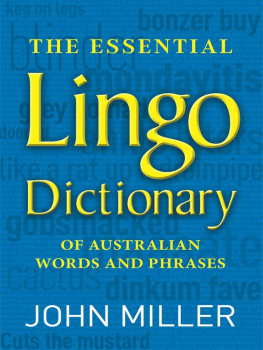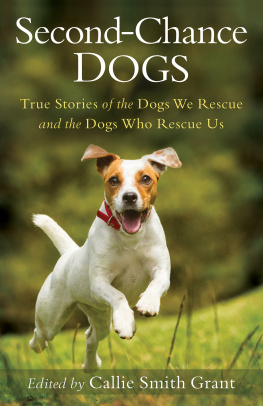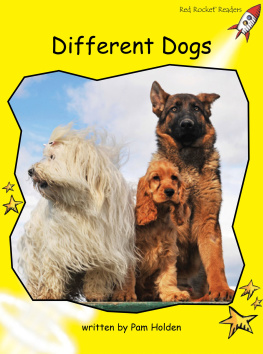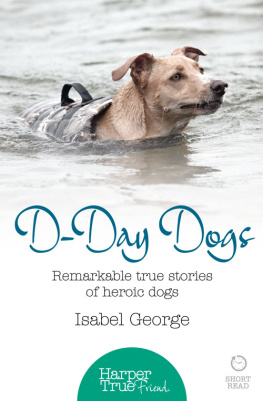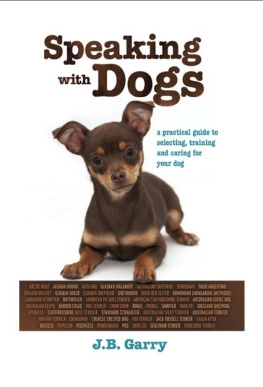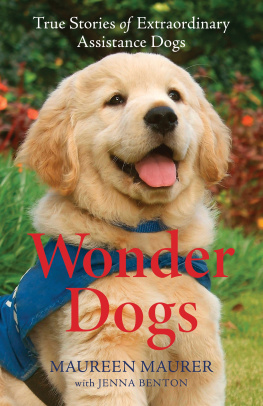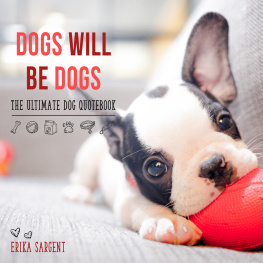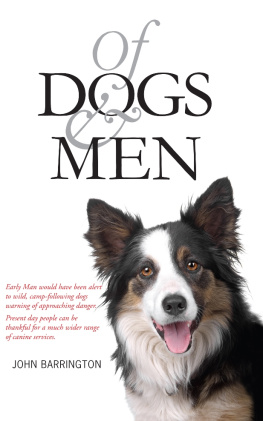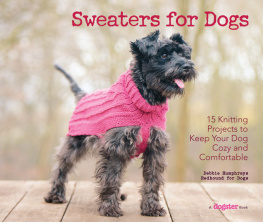First published 2013
Exisle Publishing Limited,
P.O. Box 60-490, Titirangi, Auckland 0642, New Zealand.
Moonrising, Narone Creek Road, Wollombi, NSW 2325, Australia.
www.exislepublishing.com
Copyright Max Cryer 2013
Max Cryer asserts the moral right to be identified as
the author of this work.
All rights reserved. Except for short extracts for the purpose of review, no part of this book may be reproduced, stored in a retrieval system or transmitted in any form or by any means, whether electronic, mechanical, photocopying, recording or otherwise, without prior written permission from the publisher.
National Library of New Zealand Cataloguing-in-Publication Data
Cryer, Max.
Every dog has its day: A thousand things you didnt know about mans best friend/Max Cryer.
Includes bibliographical references.
ISBN 978-1-921966-28-6
1. DogsMiscellanea. I. Title.
636.7dc 23
ISBN 978-1-921966-28-6
10 9 8 7 6 5 4 3 2 1
Text design and production by IslandBridge
Cover design by Christabella Designs
Printed in China by Everbest Printing Co Ltd
The author thanks
Dame Kiri Te Kanawa
(whose suggestion initiated the project)
and
Geoffrey Pooch, Emma Sloman, Paul Barrett, Ian Watt,
Graeme & Valerie Fisher, Robbie Ancel, Clif Crane,
Pluto Stevens and Harry Stevens
The Power of a Dog
When the fourteen years which Nature permits
Are closing in asthma, or tumour, or fits,
And the vets unspoken prescription runs
To lethal chambers or loaded guns,
Then you will find its your own affair
But ... youve given your heart to a dog to tear.
Rudyard Kipling
Man is a dogs idea of what God should be.
Introduction
Throughout recorded history, human beings have occupied a position at the pinnacle of creation and seen themselves as the main players on the planet. But four other creatures have played invaluable supporting roles in making this perception a reality. Without the horse, the bullock, the dog and the cat, our environment would be very different.
Before the industrial age, horses and bullocks contributed muscle power in creating modern roads and railways. They were also crucial in facilitating travel, supporting agriculture, assisting in wars, and helping to build grand edifices before cranes and front-end loaders were invented. Horses also provided considerable profit (and loss) in their capacity as racers, while the value of the relationships they formed with humans cannot be underestimated.
Cats have never lifted a brick or hauled so much as a toy cart, but they have provided companionship and solace to the lonely, and are a haughty reminder to humans that they are not always in charge. They never fail to intrigue the humans they own.
But what of dogs? They have always been willing to provide, ungrudgingly, both work and companionship. Energetic and helpful, a dog can fulfil many roles. Or perhaps roles is the wrong word, because a dog is not acting. It is for real, and is capable of being a fearsome guard, a diligent protector, a fashion accessory, a tireless herder of recalcitrant sheep or wandering cattle, a detective of secretive scents, a burglar alarm, a retriever of hunted quarry, a competitive racer, a guide for the blind and the deaf, a vital alert for those with allergies, an assistant to the law, a powerful hauler of snow vehicles, and a mobile smoke alarm. Songs are sung about them and, real or cartooned, they star in movies.
In addition to their rare capacity and willingness to work, they offer, seemingly without effort, impressive amounts of companionship and charm not to mention bravery, humour, faithfulness and sometimes endearing eccentricity.
To many devoted dog owners, they are a form of god the god spelt backwards.
Citizen Canine
The legend
When God created the universe, all the plants and animals came into being but had no names. So during the seven days, the Almighty painstakingly gave a name to every creature that walked, swam, crawled and flew. Whether they had four legs, a tail, fins, wings, a tongue He named them all.
The same applied to every plant that grew and climbed and spread and bloomed the pine, the oak, the smallest bluebell He named them all.
It was a tiring task, but eventually the Almighty had named every living creature on Earth.
Except one.
One animal had followed God throughout, faithfully keeping behind, always ready and never demanding. But no name had been given to him.
Am I to be without a name? he asked the Almighty.
God looked down, and said: I had not forgotten. You have been humble, you have been patient and you have waited your turn, like a good friend. So now I will give you a name and to honour you, your name will be my own name in reverse.
You shall be called Dog.
The fact
He may be mans best friend, but it is far from clear where his name comes from. The word dog is one of the great mysteries in the English language.
It first appeared in print c.1050 in the term canum docgena, but the origin of the word before that is obscure. Several European languages have words similar to dog, but these seem to be related to the English word and so provide no clue as to its original provenance.
Before the appearance of dog, the Old English word most commonly used to refer to canines was hund, or as we say today, hound. That can be found as early as c. 857 and was originally used to refer to any canines. Several centuries later, hound began to be used in the restricted sense we know today: a hunting dog, specialising in the chase, especially one that follows its prey by scent.
The female counterpart is bitch, a term which dates to c. 1000 and is believed to be related to an old Norse word bikkja. Using bitch as a derogatory term for a woman dates to some time before 1400. But despite its obscure origin, the word dog, like the canine it represents, has become an integral part of our lives.

To say dog in another language
| Arabic | calb |
| Bengali | kukur |
| Chinese | gau |
| Finnish | koira |
| Greek | skylos |
| Hebrew | kelev |
| Japanese | seta |
| Korean | gae |
| Latvian | suns |
| Polish | pies |
| Russian | cobaka |
| Serbian | pas |
| Tibetan | khyi |
| Zulu | inja |
And dogs dont always say Bow-wow, as the English language would have it or Yip-yip,
Ruff-ruff or Arf.
In Mandarin-speaking countries, dogs say


